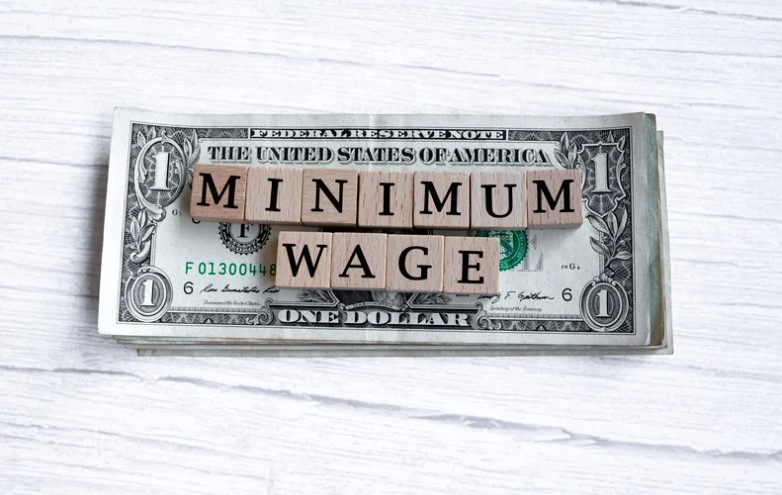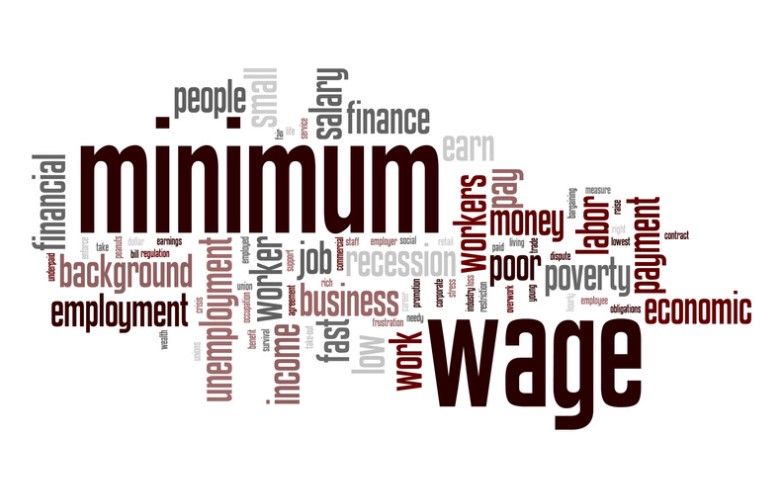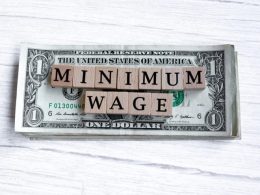Welcome to the bustling city of Winnipeg, where hard work and fair pay go hand in hand. Have you ever wondered what the minimum wage is in this vibrant Canadian city? Well, wonder no more! In this blog post, we’ll dive into all things related to the minimum wage in Winnipeg – from how it’s determined to its impact on the local economy. So grab a cup of coffee (or tea if that’s your preference) and get ready to explore the ins and outs of earning a living wage in our beloved Winnipeg. Let’s jump right in!
What is the Minimum Wage in Winnipeg?

The current minimum wage in Winnipeg is set at $15.30 per hour, as of now. This rate applies to most employees in the province of Manitoba, including those working in the city of Winnipeg. However, it’s important to note that there are some exceptions and variations depending on certain factors such as age and experience.
The minimum wage is reviewed annually by the government to ensure that it keeps up with inflation and reflects the cost of living. This means that it may be subject to change from year to year. Both employers and employees must stay updated on any adjustments made by the provincial government.
While $15.30 per hour may provide a starting point for individuals entering the workforce or taking on entry-level positions, many argue that it falls short when considering the rising costs of housing, transportation, and necessities.
How the Minimum Wage is Determined in Winnipeg?
Determining the minimum wage in Winnipeg is a complex process that involves careful consideration of various factors. The Province of Manitoba sets the minimum wage, taking into account economic conditions, cost of living, and input from stakeholders such as workers’ organizations and business associations.
The Minimum Wage Board, appointed by the government, plays a vital role in this process. They conduct extensive research to understand the current economic climate and analyze data related to wages and living expenses. This information helps them make informed recommendations regarding any necessary changes to the minimum wage rate.
It’s important to note that these decisions are not made hastily or without due diligence. The board takes its responsibility seriously and strives to strike a balance between ensuring fair compensation for workers while also considering potential impacts on businesses.
Once their recommendations are submitted, they are carefully considered by policymakers before determining whether an increase or adjustment is warranted. This ensures that any changes made reflect both societal needs and economic realities.
The History of the Minimum Wage in Winnipeg

The history of the minimum wage in Winnipeg is a reflection of the changing economic landscape and societal attitudes toward fair compensation. The concept of a minimum wage was first introduced in Canada in the early 20th century as a means to protect workers from exploitation and ensure they received a decent standard of living.
In 1918, Manitoba became one of the first provinces to establish legislation setting a minimum wage. At that time, it was set at 25 cents per hour for adult male workers and 20 cents per hour for female workers. Over the years, the minimum wage has been adjusted numerous times to keep pace with inflation and changing economic conditions.
Notably, there have been significant increases in recent years as part of efforts to address income inequality and improve living standards. In October 2020, the minimum wage in Manitoba increased to $11.90 per hour for most industries, with adjustments made for specific sectors such as agriculture or construction.
These increases have not come without controversy, though. Some argue that raising the minimum wage too quickly can lead to job losses or business closures, while others believe providing workers with a livable income is necessary.
Understanding the history of the minimum wage in Winnipeg provides valuable insights into how our society has evolved when it comes to recognizing and addressing issues related to worker rights and fair compensation. It serves as an important reminder that progress can be made through ongoing discussions and advocacy efforts surrounding this critical issue.
How Does the Minimum Wage Compare to Other Cities in Canada?
When it comes to the minimum wage in Winnipeg, how does it compare to other cities in Canada? Let’s take a closer look.
In terms of numbers, as of now, the minimum wage in Winnipeg is set at $15.30 per hour for most employees. This puts it on par with the minimum wage in other provinces such as British Columbia and Alberta. However, when compared to larger cities like Toronto or Vancouver, where the cost of living is generally higher, Winnipeg’s minimum wage may seem relatively lower.
It’s important to note that while the minimum wage may vary across cities and provinces, its purpose remains consistent – providing workers with a fair baseline income that allows them to meet their basic needs. The specific dollar amount may change depending on factors such as inflation rates and economic conditions.
Comparing minimum wages between cities can be complex due to regional differences in cost of living and economic factors unique to each area. Policymakers and stakeholders alike must consider these nuances when determining appropriate levels.
The Impact of the Minimum Wage on the Economy of Winnipeg
The impact of the minimum wage on the economy of Winnipeg is a topic that has sparked much debate and discussion. Some argue that increasing the minimum wage will lead to job losses and higher prices for goods and services, while others believe that providing workers with a fair living wage is necessary.
One way in which the minimum wage affects the economy is through its impact on consumer spending. When workers make more money, they have more disposable income to spend on goods and services. This increased spending can help stimulate economic growth and support local businesses.
An increase in the minimum wage can also lead to reduced employee turnover rates. When workers are paid a livable wage, they are more likely to stay with their current employer rather than seek out higher-paying jobs elsewhere. This can result in cost savings for businesses by reducing recruitment and training expenses.
On the other hand, opponents of raising the minimum wage argue that it could lead to job losses, particularly for small businesses operating on thin profit margins. They contend that these businesses may be unable to afford to pay higher wages and may be forced to reduce their workforce or close altogether.
Living Wage vs. Minimum Wage in Winnipeg

When it comes to wages, there is an ongoing debate between the concept of a living wage and the minimum wage. While both aim to ensure workers earn a fair income, they have different approaches and implications.
The minimum wage in Winnipeg is the legal minimum amount that employers must pay their employees. It is set by the provincial government based on factors such as inflation rates and economic conditions. Currently, the minimum wage in Winnipeg is $11.90 per hour for most workers.
On the other hand, a living wage takes into account the actual cost of living in a specific city or region. It considers basic expenses like housing, food, transportation, healthcare, childcare, and education. The idea behind a living wage is that individuals should be able to meet their essential needs without relying on government assistance or high-salary jobs.
In Winnipeg specifically, calculations estimate that a single adult would need to earn around $15-16 per hour as a living wage to cover basic costs comfortably. This reflects the higher cost of housing and other expenses compared to some other cities in Canada.
Conclusion
The minimum wage for Winnipeg is constantly changing and can vary from province to province. It is important to be aware of the current rate to ensure that your employees are paid fairly and to avoid potential fines or legal action. By staying up-to-date on provincial minimum wages, employers can ensure they are following all laws and regulations when paying their staff properly. This will help create a fair work environment where everyone is treated fairly and appropriately compensated for their efforts.










